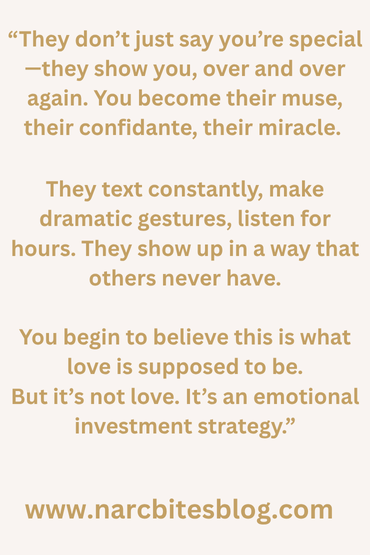It doesn’t happen overnight. That’s the first thing you need to understand about emotional dependence in narcissistic relationships—it’s not instant, and it’s rarely obvious. It’s not like someone ties you to a chair and demands loyalty. It’s quieter. More elegant. Almost loving.
In the beginning, it feels like connection. Intense, soul-shaking connection. The narcissist studies you—your rhythms, your wounds, your dreams—and mirrors them back like magic. You’ve never felt so seen, so known, so deeply understood. This isn’t chemistry. It’s engineering.
They aren’t falling for you. They’re constructing a cage.
Let’s pull back the curtain on how narcissists create emotional dependence—step by step.
1. They Identify Your Emotional Blueprint
Before any manipulation begins, the narcissist tunes in to who you are beneath the surface. They watch how you talk about your past, how you respond to kindness or criticism, what lights you up, and what shuts you down.
To someone else, this looks like deep interest. But what’s actually happening is reconnaissance.
Are you someone who grew up needing to earn love? Someone who’s afraid of abandonment? Someone who over-functions in relationships?
Perfect. You’re malleable. You’re already primed to believe that love comes with pain, or sacrifice, or hard work. That’s where they begin.
The narcissist doesn’t create needs—they exploit the ones that already exist.
They move in like a solution, offering you the illusion of healing. But what they’re really doing is mapping your emotional infrastructure so they can control it later.
2. They Build the Fantasy You’ve Always Wanted
This is the seduction stage—not just romantic, but deeply emotional. The narcissist offers you a vision of partnership that’s wildly compelling. They talk about the future as if it’s already here. They idealize you. They reflect back everything you hoped to be.
And for a while, it feels euphoric.
They don’t just say you’re special—they show you, over and over again. You become their muse, their confidante, their miracle. They text constantly, make dramatic gestures, listen for hours. They show up in a way that others never have.
You begin to believe this is what love is supposed to be.
But it’s not love. It’s an emotional investment strategy.
They aren’t showing you who they are. They’re showing you who you’ve been waiting for.
3. They Make You Dependent on the Highs
Once you’ve tasted this idealized version of love, anything less feels like abandonment. And that’s exactly what they use against you.
I always say that once you’ve stood on Mount Everest, it’s hard to settle for K2.
They begin to withdraw—subtly. They reply slower. They become distracted. They forget the tiny things they used to remember. The drop in attention feels massive. You panic. You try harder.
They’ve trained your nervous system to associate them with peak emotion. Now they create the contrast—and that contrast hurts.
You want the highs back. You want the version of them from the beginning. And so you start adjusting yourself: talking less about your needs, trying not to “ruin the vibe,” prioritizing them over yourself.
You’re no longer relating—you’re performing.
This isn’t just emotional manipulation. It’s biochemical conditioning. Your brain releases dopamine during the highs, and cortisol during the lows. The unpredictability itself becomes addictive.
4. They Introduce Subtle Doubts and Emotional Confusion
Once they sense that you’re emotionally hooked, the next phase begins: destabilization.
They start asking, “Are you always this sensitive?” Or they’ll say, “You’re imagining things,” when you bring up a concern.
This isn’t outright cruelty. It’s confusion.
They create just enough emotional fog to make you unsure of yourself—but not enough to push you away. You begin to question your instincts, your feelings, your memory.
The emotional dependence grows because now you look to them—not yourself—for what’s real.
They become your anchor—but they’re the ones tossing you into the storm.
5. How They Use Validation and Withdrawal
to Create Emotional Dependence
At this point, their approval becomes your oxygen. You’ve been conditioned: when you please them, you get warmth. When you assert yourself, you get coldness.
They don’t need to rage or scream. All they need to do is pull away.
The silence is deafening.
It triggers the same part of your brain that processes physical pain. You’ll do almost anything to avoid it. So you self-abandon to keep the peace. You stay silent when you should speak. You apologize when you’ve done nothing wrong.
You begin to monitor their moods more than your own.
And in the process, you lose your internal compass.
Eventually, you stop asking for anything. Not because you don’t need it—but because you’ve been taught that needing equals punishment.
6. They Rewrite Your Priorities to Deepen Emotional Dependence
Gradually, your emotional world revolves around them. Their moods dictate your actions. Their needs override your own. Their pain becomes your responsibility.
They create crises only you can solve. They provoke jealousy to feel wanted. They bait you into arguments just to feel in control.
You begin to measure your day by whether they’re okay—not whether you are.
The dependence is now fully established. You can no longer imagine life outside this dynamic.
And if you do imagine it, it feels hollow. Because your entire identity has been reshaped around one role: caretaker of their chaos.
7. They Isolate You Emotionally (Even If You’re Surrounded by People)
They don’t need to cut you off from your friends or family to isolate you. Emotional isolation happens when no one around you understands what you’re experiencing.
They might charm your friends. They might present as the perfect partner to your family. They create a public image that contradicts your private reality.
Now, when you do try to talk about what’s happening, people say, “But they seem so great.”
You begin to retreat. You doubt your perspective. And you stop reaching out.
This deepens your emotional dependence. Because now, the narcissist is your only emotional reference point.
You could be in a crowded room, surrounded by people who love you—and still feel entirely alone.
8. They Confuse Love with Suffering
One of the most powerful forms of emotional conditioning in narcissistic abuse is the rewriting of love as struggle.
You begin to believe that intensity equals intimacy. That pain means passion. That walking on eggshells is normal.
This belief doesn’t come from nowhere—it’s fed to you over time.
They’ll say things like, “Real relationships take work,” or “You just have trust issues.”
You internalize the idea that if you’re hurting, it must be because you care.
This creates an unbreakable loop: the more you suffer, the more convinced you are that you’re in love.
And as long as you’re suffering, they’re winning. Because they’ve convinced you that the pain proves your loyalty.
9. They Blur the Line Between Safety and Danger
One of the most disorienting aspects of emotional dependence is that your body stops knowing what’s safe.
The narcissist is both your comfort and your threat.
They soothe you after hurting you. They compliment you after demeaning you. They come closer right after you try to pull away.
This creates a trauma bond: a neurochemical attachment that mimics addiction.
Your brain starts to crave the relief that follows their cruelty. You hold on for the “good moments,” even if they become fewer and further between.
You’re no longer choosing the relationship. You’re surviving it.
And survival doesn’t leave much room for clarity. Just endurance.
10. They Make You Feel Like You Can’t Live Without Them
By the final stage, the narcissist doesn’t even need to try. You’re emotionally entangled. Your identity has been shaped around their presence. The thought of leaving feels like death.
They may say things like:
- “No one else will ever love you like I do.”
- “You’re too much for other people.”
- “You think someone else would put up with you?”
And because they’ve eroded your confidence slowly, you believe them.
You stay. Not because you’re weak. But because they’ve made themselves your emotional center of gravity.
Even your pain begins to orbit around them.
Breaking the Cycle of Emotional Dependence
Recovering from emotional dependence on a narcissist is like waking up from a long, vivid dream.
You start to remember who you were before. You begin to feel emotions that aren’t filtered through fear. You learn how to regulate your nervous system again.
But it’s not instant.
There’s grief. Guilt. Withdrawal. There’s the slow process of learning that love doesn’t mean anxiety. That peace is not boring. That you don’t need to suffer to be worthy.
And most of all, there’s the reclaiming of your inner compass—so you can begin to trust your own emotional truth again.
You don’t owe anyone your loyalty at the expense of your soul.
You don’t need to explain why you stayed.
You only need to know this:
It wasn’t love.
It was emotional captivity.
And you’re allowed to walk free.
You are not a prisoner to someone else’s storm. You are not defined by the role they assigned you.
You can come home to yourself. And this time, you stay


